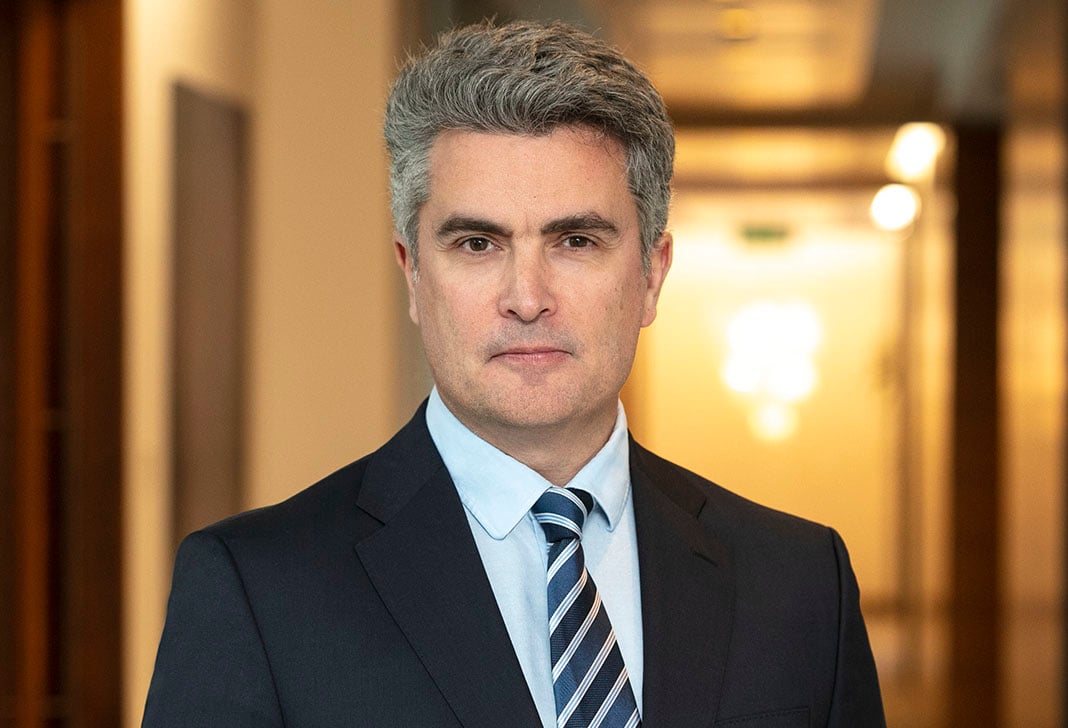EuroResource--Deals and Debt
Recent Developments
Global—On 1 March 2013, the U.S. Court of Appeals for the Second Circuit issued an order in NML v. The Republic of Argentina, No. 12-105(L) (2d Cir. Mar. 1, 2013). The order directed the Republic of Argentina, on or before March 29, 2013, to submit in writing to the court the precise terms of any alternative payment formula and schedule for repaying defaulted bond debt as well as exchange bonds to which it is prepared to commit in lieu of the ratable payment formula ordered by the U.S. district court in its ruling of November 21, 2012. Specifically, the court order requires Argentina to indicate: (i) how and when it proposes to make current those debt obligations on the original bonds that have gone unpaid over the last 11 years; (ii) the rate at which it proposes to repay debt obligations on the original bonds going forward; and (iii) what assurances, if any, it can provide that the official government action necessary to implement its proposal will be taken, and the timetable for such action.
On 26 March 2013, the Second Circuit denied Argentina's request for a rehearing of the court's 26 October 2012 ruling (NML Capital, Ltd. v. Republic of Argentina, 699 F.3d 246 (2d Cir. 2012)) upholding a district court order enjoining Argentina from making payments on restructured defaulted debt without making comparable payments to bondholders who did not participate in the restructuring. Argentina had argued that the Second Circuit ruling of 26 October will make voluntary debt restructuring by sovereign nations "essentially impossible".
Spain—The capital structure of the Asset Management Company for Assets Arising from the Spanish Bank Restructuring ("SAREB") established in late November 2012 by the Fund for Orderly Bank Restructuring (Fondo de Restructuración Ordenada Bancaria ("FROB")) in connection with the Spanish banking sector recapitalization and restructuring process has been completed. SAREB was created as a limited liability stock company for a term not to exceed 15 years. It is governed by the provisions of Law 9/2012 of 14 November 2012 on Restructuring and Resolution of Credit Entities ("Law 9/2012"), by the Royal Decree 1559/2012 of 15 November 2012, which established the Legal System for Asset Management Companies, and by other private law regulations.
The exclusive purpose of SAREB is ownership, management and administration (whether directly or indirectly) as well as the acquisition and sale of distressed assets which have been transferred to it by: (i) financial institutions that required public assistance from FROB when Royal Decree-Law 24/2012 on Restructuring and Resolution of Credit Entities (now repealed by Law 9/2012) entered into force; and (ii) institutions that require public funds, according to the Bank of Spain's judgment and independent analysis of the capital needs and quality of the assets of the Spanish financial system (carried out within the framework of the Memorandum of Understanding on Financial-Sector Policy Conditionality executed by Spanish and European authorities on 20 July 2012).
SAREB will be managing total assets of more than €50 billion after acquiring the assets of Group 1 entities (i.e., banks that have already been nationalized: Bankia, Catalunya Bank, NCG Banco-Banco Gallego and Banco de Valencia) for approximately €36.7 billion and the assets of Group 2 entities (i.e., banks that require public capital: BMN, Liberbank, Caja3 and CEISS) for approximately €14 billion, all according to parameters defined by restructuring plans approved by the European Commission on 28 November 2012.
Germany—On 3 January 2013, the German Ministry of Justice circulated draft legislation that would establish procedures governing the coordination of insolvency proceedings of affiliated companies. Existing German law does not provide for a joint approach to such insolvencies, but is instead structured to accommodate companies on an individual basis. Under current law, an insolvency petition must be filed in the court of the district where the centre of a group member's economic activity is located. This often results in the involvement of multiple insolvency courts and the appointment of multiple officeholders to administer the insolvency proceedings of group members. As a result, it is frequently difficult to achieve the best results for stakeholders in cases where corporate functions serving the whole group have been allocated to a single group member before insolvency proceedings, or where similar dependencies exist among group members. Close cooperation of group members following the filing of an insolvency petition may not be possible if different courts and officeholders are involved, although such cooperation may be desirable for economic reasons. The proposed legislation is intended to change this, consistent with broader EU legislative activity promoting closer cooperation between courts and officeholders in insolvency proceedings of group companies carrying on economic activity in different member states.
The German ministry's proposed legislation provides for a single insolvency court to have jurisdiction over all the members of the group. Which particular court shall have such jurisdiction depends on a number of factors, including: (i) a finding by the court that the petitioning group member is of sufficient significance to the group to warrant commencement of joint proceedings in the district where the centre of that group member's economic activity is located; and (ii) the interests of creditors. The court presiding over joint proceedings may generally appoint a single insolvency administrator for all group members. The court may also appoint a joint creditors' committee. However, each group member's insolvency proceeding will be administered separately—the draft legislation does not provide for the substantive consolidation of group members' estates. In cases involving the appointment of multiple insolvency administrators, the court may appoint a coordinating administrator to harmonize the joint proceedings, including by means of a joint insolvency plan. Finally, in cases involving multiple insolvency courts and officeholders administering the proceedings of group members, the courts and officeholders would be obligated to exchange relevant information and to cooperate generally.
Newsworthy
On 29 January 2013, Jones Day's Paris Office conducted a seminar discussing emerging trends in the French private equity market. There has been a recent uptick in litigation against private equity funds whose portfolio companies commence insolvency proceedings. On 1 June 2012, for example, a French Commercial Court ruled that a private equity fund was liable after one of its subsidiaries became insolvent because the fund interfered with management of the subsidiary and committed certain acts of mismanagement. The case is still pending before the Appeals Court of Orleans. Interference with management can also be a basis for actions before French labor courts in cases where there is "confusion of interest, management and activity" between a private equity fund and its portfolio company. In light of these developments, private equity funds would be well advised to take precautionary steps in order to mitigate potential exposure in the event that a portfolio company becomes stressed.In January 2013, Jones Day expanded its German Banking & Finance Practice with the addition of Annica Lindegren in the Frankfurt Office and Ulf Kreppel in the Munich Office. Nick Wittek joins the Frankfurt Office this month. The three new partners arrive from White & Case. The addition of these lawyers continues the rapid expansion of Jones Day's German Banking & Finance Practice, which includes a team led by Claudia Leyendecker, who joined the Düsseldorf Office near the end of 2012, and brings the number of German Banking & Finance partners in the Firm to six. These additions underscore the importance of Banking & Finance to Jones Day Germany and demonstrate the increasing scope of the Firm's presence in the German market.
Jones Day advised Cinema City International N.V. ("Cinema City"), based in Amsterdam, the Netherlands, in connection with its acquisition of Israel Theatres Real Estate BV, an indirect subsidiary of Israel Theatres Ltd., for a purchase price of €33.1 million (US$43.6 million). Cinema City will also assume debts of the acquired company aggregating €110.7 million (US$145.9 million), making the total value of the acquired assets €143.8 (US$189.5 million), comprising all of the group's real estate assets across Bulgaria, Israel and Poland. At the same time, Jones Day also advised Cinema City on its new club bank financing agreement with a consortium of banks composed of BZ WBK, HSBC and ING Bank Slaski for a total of €210 million (US$276.8 million).
Jones Day acted as counsel to Allen & Company, the financial advisor to OCI N.V. ("OCI"), a Dutch company, in connection with the announced US$1 billion investment in OCI in support of OCI's share exchange offer to acquire all outstanding global depository receipts of Orascom Construction Industries for cash or for ordinary shares in OCI. OCI is an international nitrogen fertilizer producer and engineering and construction contractor, with projects and investments across Europe, the Americas, the Middle East, North Africa and Central Asia. It employs more than 74,000 people in 35 countries around the globe.
Jones Day is acting as counsel to Société de Financement Local ("SFIL"), a new credit institution established with the approval of France's Prudential Supervisory Authority (autorité de contrôle prudential) to respond to structural financing difficulties faced by the French public sector in the aftermath of Dexia's withdrawal from the market. SFIL is owned by the French State (75 percent), the Deposits and Consignments Fund (caisse des dépôts et consignations) (20 percent) and La Banque Postale (5 percent). Beginning 1 February 2013, SFIL will assume the responsibility for administering public sector loans marketed during the past years by Dexia Crédit Local and registered on the balance sheet of Dexia Municipal Agency, which is now known as Caisse Française de Financement Local ("CAFFIL"). It is anticipated that SIFL will also restructure sensitive loans currently held by CAFFIL, which is also being advised by Jones Day.
Jones Day's Amsterdam Office opened 1 February 2013. As part of the official opening, the Firm also announced that Marcel van de Vorst and Marc Rijkaart van Cappellen have joined the new office as M&A partners. Luc Houben, recently partner-in-charge of the Brussels office, has moved to Amsterdam to head the new six-lawyer office. The lawyers of Jones Day Amsterdam will focus on corporate matters, M&A, private equity, capital markets, technology transactions, litigation and arbitration, antitrust and tax.
European Distress Team Members
Global
Corinne Ball
Brussels
David Roger
Frankfurt
Volker Kammel
Christian Staps
London
Matthew French
Kay Morley
Michael Pabst
Sion Richards
Andrew Rotenberg
Michael Rutstein
Madrid
Victor Casarrubios
Juan Ferré
Fernando Lillo
Luis Muñoz
Richard Puttré
Milan
Marco Lombardi
Francesco Squerzoni
Munich
Olaf Benning
Sandra Kamper
Ansgar Rempp
New York
Paul Leake
Veerle Roovers
Paris
Laurent Assaya
Frédéric Gros
Linda Hesse
Florence Moulin
San Francisco
Tobias Keller












